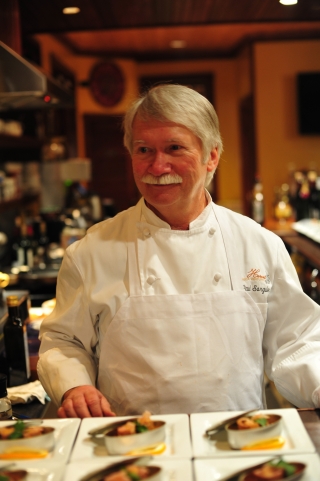
Another Year, Another Challenge (Opportunity)
08 August 2022Teach the 10 most-essential aptitudes and set the table of success.
By Paul Sorgule, MS, AAC
Feedback & comments: This email address is being protected from spambots. You need JavaScript enabled to view it.
Soon, they will arrive. A new cohort of students seeking to find their way into an industry maligned by some and revered by others. They hope to find a way to create and express, understand and interpret, and find their niche in a world where food is the medium and the plate is their canvas.
They will walk through those kitchen doors on day one with freshly pressed uniforms, spotless side towels, and knife kits that are, at this point, more dangerous than friendly. You will be there to receive them, try to understand them, encourage them, and teach and train them. It is a daunting task and a wonderful opportunity.
One thing is certain – these students are different than the students you met for the first time a year ago and significantly different than you were at their age. Chefs from coast to coast have too often referred to these students as lacking in work ethic, not committed to the profession, undependable and unpredictable, filled with overblown ideas of what it takes to succeed, and unwilling to listen to the wisdom of age. How you approach these students from day one will determine how successful you are in setting a course for their future.
Will you succumb to the theory that they are not as committed as you were, not passionate enough, focused enough, hardworking enough, and not what the industry really needs? Will you continue to approach them in the same manner you did last year’s class or a class from 10 years ago? Will you start day one with a pre-conceived idea that since they are not YOU, they will find it difficult to reach their goals and fulfill the expectations of future employers?
This may not be your approach at all. Maybe you always approach each class with an open mind and willingness to adjust how you teach and train the students you face today. But, just in case you inherently agree with many industry chefs, why not approach this year as a fresh beginning?
What are we trying to achieve over the next year, two years, or four? What is it that will set the stage for their success and continued love of cooking and expressing themselves through food? Maybe, just maybe, it would be wise to start with some universal objectives and then adapt them to fit the student of today.
Universal Objectives (Graduate Skills/Aptitudes)
Our graduates will exhibit the following:
- Dependability
- Inquisitiveness
- Excellent listening skills
- Awareness of their role in the surroundings
- Team player
- Strong cooking foundations
- Solid work ethic
- Respect for others and the ingredients
- Commitment to clean and safe work habits
- Always professionalism
Note – only one of these 10 skills/aptitudes directly relates to cooking. Foundations of cooking (knife skills, cooking methods, building flavor, knowing ingredients, etc.) will always serve your graduates well. They can expand upon them and learn the intricacies of specific cuisines as they grow through their career. They will always be able to fall back on the foundations. Everything else relates to how they approach work.
These universal objectives are the most essential attributes of a successful person and as such they can and must be emphasized every day in every class until they become second nature. This is what you can do to set the stage for success. Teach these universal attributes to every student in every class. This is what defines the reputation of your students and the institution where you work. This is the most important part of your job as a teacher.
As an instructor or administrator, it is your responsibility to create an environment for this to occur. Establish standards, provide tools for these standards to work, enforce these standards, and make them the hallmark of your program. Measure to this, set the example for this, engage everyone in the process of living by these standards, demonstrate how each student can adapt to these standards, and then celebrate their execution.
I guarantee if this becomes your method of operation then another year will be viewed as a great opportunity, every graduate will take pride in the logo on their diploma, and every chef will give a nod of approval for the students that he or she hires.
Welcome to a new year of changing the world – one student at a time.
PLAN BETTER – TRAIN HARDER
Paul Sorgule, MS, AAC, president of Harvest America Ventures, a mobile restaurant incubator based in Saranac Lake, N.Y., is the former vice president of New England Culinary Institute and a former dean at Paul Smith’s College. Contact him at This email address is being protected from spambots. You need JavaScript enabled to view it..
